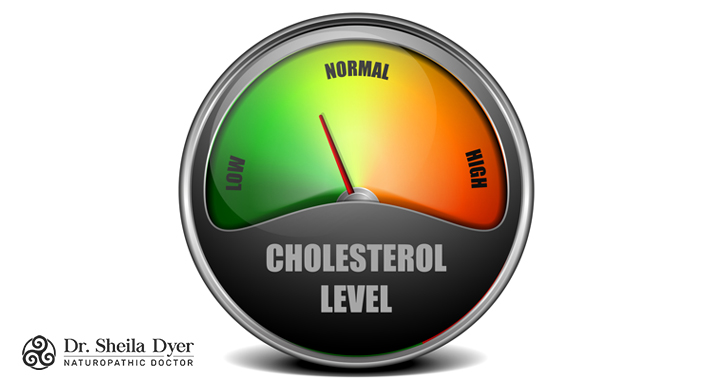When it comes to the B vitamins, things can get confusing sometimes.
B vitamins include B1, B2, B3, B5, B6, B7, B9, and B12
You might be asking “what happened to vitamin B4, B8, B10, and B11?” – these are substances which have been removed from the list because they are no longer considered vitamins.
Another question which may come to mind is “why are these vitamins all grouped together?”
The answer is they all have similar properties, overlapping functions, and because they are often found together in foods.
I’m Dr. Sheila Dyer, a naturopathic doctor in Toronto and today we’re going to take a closer look at vitamin B5 to get a better understanding of how it affects your body.
So far, we’ve looked at what to look for in a B complex vitamin, as well as profiles of vitamin B1, vitamin B2, and vitamin B3.
Keep reading to find out more about the next B vitamin in the list, vitamin B5.
What Is Vitamin B5?
Also called pantothenic acid, vitamin B5 helps the body metabolize macronutrients – proteins, fats, and carbohydrates – into energy.
It also plays an important role in maintaining healthy skin and is required for your body to produce red blood cells.
Vitamin B5 is water soluble which means excess amounts of the vitamin are excreted in your urine and not stored in the body.
As a result, it’s important to make sure you’re regularly getting enough through diet or supplementation to meet your body’s needs.
Health Benefits Of Vitamin B5
Vitamin B5 has a number of beneficial health effects.
Let’s look closer at the role of this important vitamin.
1. It Supports Vitamin B2
We mentioned above that B vitamins are grouped together because they have similar properties and overlapping functions.
So it’s not surprising vitamin B5 and another B vitamin – B2 – go hand in hand.
Vitamin B2 has a number of benefits, including relieving migraines, helping with carpal tunnel syndrome, and lowering the risk of cataracts.
Vitamin B5 helps your body to use vitamin B2 more effectively.
2. It Helps Regulate Cholesterol Levels
There is evidence to suggest taking vitamin B5 can act to lower total cholesterol levels.
A 2011 study found this while looking at its effects in individuals with low to moderate risk of heart disease.
3. It Can Improve Cognitive Performance
Vitamin B5 is needed for healthy brain functioning.
Supplementing with B5 can help increase levels of a number of neurotransmitters, including serotonin, which can help stabilize mood.
It also helps to improve memory.
4. It Can Help With Chronic Stress
Sometimes B5 is called the anti stress vitamin.
It helps your body regulate the production of cortisol, which is created when you’re under stress.
In addition, it helps with the functioning of the adrenal glands, which can become overworked and experience adrenal fatigue when under excessive amounts of stress.
As a naturopath for stress and anxiety, I often recommend vitamin B5.
5. It Helps Your Body Heal Wounds
Vitamin B5 is good for your skin, both as a topical moisturizing cream, but also to help with wound healing.
It helps skin heal faster, and can also be used to reduce the appearance of acne.
For the most effectiveness, it should be combined with vitamin C.
Signs Of Vitamin B5 Deficiency
If you’re low in vitamin B5, here are some of the symptoms you may notice:
- Chronic fatigue
- Mood swings
- Poor coordination
- Headaches
- Digestion issues
Dietary Sources Of Vitamin B5
You might be asking now, how to ensure you’re getting enough vitamin B5.
A great place to start would be to add some of the following foods into your diet:
- Avocados
- Sunflower seeds
- Lentils
- Corn
- Salmon
- Chicken liver
- Cauliflower
- Eggs
- Sun dried tomatoes
- Portobello mushrooms
Can You Overdose On Vitamin B5?
Due to the fact that vitamin B5 is water soluble, and excess amounts of it are removed from the body via your urine, it is difficult to overdose on this important nutrient, especially through diet alone.
If you take a B5 supplement, however, there is a risk of overdose, which can increase risk of bleeding and lead to diarrhea.
Additionally, taken along as a supplement, it could cause an imbalance with other B vitamins, which is why it’s often recommended to take these together as a B complex vitamin, rather than separately.
Book Your Appointment With Dr. Sheila Dyer, ND, Today
Are you confused about vitamins?
Do you constantly wonder if you’re getting enough of them in your diet, or if you need to be taking supplements to make up for any potential gaps?
Whether you have specific concerns about a particular condition or symptom you’ve been experiencing, or just want to make sure you’re getting enough of everything your body needs, I’m Dr. Sheila Dyer, ND, a naturopathic doctor in Toronto, and I can help.
Book an appointment with me today, and let’s take the first step towards a healthier life for you.
If you have questions about naturopathic medicine, or would like to start with your first consultation, contact me, and let’s book an appointment.
Dr. Sheila Dyer, ND1080 Dovercourt Rd,
Toronto, ON M6H 2X8
(416) 554-5135
► https://g.page/DrSheilaDyerNd
Dr. Sheila Dyer is a Naturopathic Doctor and a practicing registered nurse offering holistic healthcare with a scientific focus

